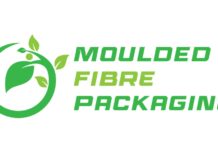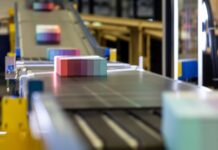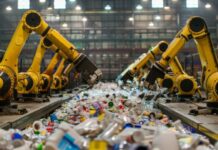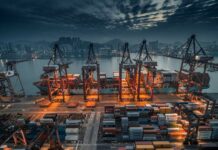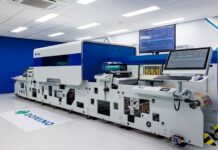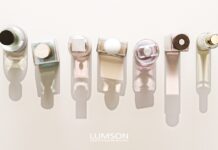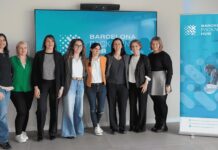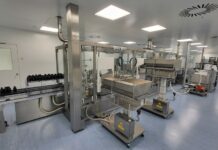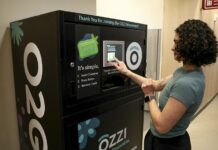The Philippines is one of the countries in Southeast Asia that has suffered heavily from the impact of the COVID-19 pandemic. The high number of cases put a lot of pressure, not only on the country’s medical and healthcare industry, but also on its economic growth. In 2020, the country’s GDP fell to a -9.6%, the biggest annual decline recorded. Industries posted slowdowns in production output while the services sector suffered substantial setback. However, the country is now putting its industrial production back to operation while other commercial and business activities are opening up. The elections in May is expected to encourage domestic spending that analysts and think-tanks are projecting from 5% to 7% growth for the whole year of 2022.
For the Philippine plastics industry, the COVID-19 pandemic presented opportunities due to the heightened demand for food & beverage packaging as well as medical supplies. While the country’s downstream plastics industry is composed largely of plastic fabricators and manufacturers that convert plastic resins to industrial and consumer finished products, it also provides strong linkages to such industry as home appliances, electronics/electrical, building and construction, drugs and cosmetics, etc. Finished products from the plastics industry consist of flexible plastics, sacks, twines and cables, pipes & fittings, PVC products, rigid packaging, tapes, and many others. Dominated by small to medium-scale enterprises, there are some large companies that are increasingly utilizing advanced production technologies and materials from suppliers in Asia and Europe.
Against the many challenges, the Philippines plastics market is poised to record more than 5% annual growth up to 2026, according to a market study by Mordor Intelligence. The report states that despite the slowdown in the automotive and transportation, consumer
goods and electronics industries due to the lockdowns and trade issues, the packaging industry posted remarkable performance due to strong e-commerce business that demand for smart packaging has never been that robust especially in the food and healthcare
sectors. The packaging sector in the Philippines is expected to reach 69 billion units by 2024, at a CAGR of 3.3% up to 2024, according to GlobalData. The sector is driven mainly by the growth in rigid plastics packaging, which is forecast to register the fastest volume CAGR of 6.4% in the next two years. The report further states that flexible packaging accounts for more than 33% of the market share.
With much optimism in plastics production comes an increased demand for injection molding equipment such as those that can process virgin resins and post-recycled consumer plastics. Injection molding process is highly preferred in the production of pallets, bottles,
caps, automotive parts, construction and medical supplies. Extruders as well as extrusion equipment that offer flexibility, high productivity and energy-savings are utilized by Philippine plastics manufacturers. On the other hand, engineering plastics with excellent
mechanical properties and biodegradable plastics are sought by those engaged in the production of smart packaging and environmentally-friendly consumer products.
In search for efficient recycling and waste conversion systems
As the Philippine industrial sector moves to recover from the impact of COVID-19 pandemic and regain its growth momentum, the requirements for state-of-the-art technologies to achieve a circular economy and reduce the country’s carbon footprint is expected to
intensify. Companies engaged in plastics production are seeing the need to look at the globally-accepted standards and processes to achieve these ends.
Well-known brands are accepting the fact that the only way to go is through the circular economy concept. In the Philippines, several initiatives are being implemented that create demand for innovative machines and production processes. The United States Agency for
International Development (USAID), through its Clean Cities, Blue Ocean (CCBO) program, has partnered with Nestlé Philippines, Inc. to help local government units (LGUs) understand link between climate change and solid waste management. In this collaboration, Nestlé
Philippines provides tips on improving local solid waste management as it implements its Climate Change and Solid Waste Management Education Program. Nestlé Philippines earlier committed to increase its use of recycled materials in its packaging. The integration
of upcycled items to reduce dependence on virgin materials is one of the important steps to achieve its circularity targets, and many machinery producers are responding to this trend.
Indonesian food & beverage giant, PT Mayora Indah Group (Mayora Group) has partnered with two plastic waste management companies in an effort to improve garbage collection and plastic recycling projects in Metro Manila. The Group equips communities with the right resources to promote sustainability while bringing livelihood opportunities. The Mayora Group has partnered with Green Antz, a local company for the upcycling of plastic waste to bollards that will guide commuters and bicycle riders.
Another major company, Procter & Gamble Philippines, which has a goal to make its packaging recyclable or reusable by 2030, provides incentives to individuals or groups dropping off their discarded plastic in designated recycling or upcycling centers. It has
partnered with a leading shopping mall to be part of their Plastic Waste Collection (PWC) Program which is run together with the Plastic Credit Exchange (PCX).
As more domestic and foreign companies engaged in plastics production in the Philippines move towards a circular economy, projections for increase requirements for advanced recycling and waste management systems are attracting suppliers of these machines from
international sources such as China, Japan, Taiwan, Europe, and North America.
At CHINAPLAS 2022, the latest recycling technologies and waste management systems are set to be demonstrated by leading companies whose goal is to help companies in Southeast Asia, like the Philippines, meet the trends for environmentally-friendly products with less
detrimental impact on the environment.
About CHINAPLAS 2022
CHINAPLAS 2022, one of the most prestigious international plastics and rubber trade fairs, will be held at National Convention and Exhibition Center, Hongqiao, Shanghai, PR China from April 25-28, 2022. The show will gather 4,000+ international exhibitors under one roof and welcome visitors from all around the world to grasp business opportunities generated from the economic recovery. To cope with the fast-changing global sourcing conditions without travelling under the pandemic, overseas buyers are now able to connect
with thousands of materials and machines suppliers via CHINAPLAS eMarketplace, a smart efficient integrated, and sustainable online sourcing platform which is complementary to the physical show of CHINAPLAS.








